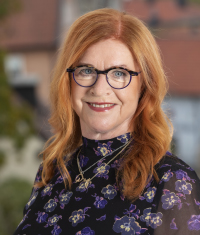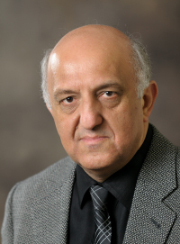“Inclusive societies deliver a higher level of financial prosperity”
Urban studies researcher Richard Florida, appointed honorary doctor at KTH
In two books that have received a great deal of attention, he has discussed the importance of what he calls the creative class when it comes to stimulating innovation and economic growth in urban areas. However, in his latest book, he also discusses the other side of the coin, segregation and inequality. World-leading urban studies researcher Richard Florida, Professor at the Martin Prosperity Institute, Rotman School of Management, University of Toronto, Canada, has been appointed honorary doctor at KTH.

In awarding the honorary doctorate, KTH states that “Richard Florida’s book The Rise of the Creative Class published in 2002 and the subsequent development of theory and data on the importance of the ‘creative class’ to positive urban development have had an incredible impact at policy level and as the starting point in market analyses for cities around the world. At the same time, this powerful impact has been much debated and criticised based on possible connections with growing social divides in cities that, from a ‘creative class perspective’, can be described as having a positive development. In his book The New Urban Crisis, published in 2017, Florida himself addresses the problem with increased segregation and inequality”.
Geographic or spatial inequality is the most pressing problem we are facing today. It is the key factor in the backlash politics of populism that is surging around the globe, according to Florida .
“We have to adopt a more inclusive approach to building greater economic prosperity in our communities. My hunch is this is best done at the local level by shifting power away from national governments to cities and communities. This is what I am working on now with mayors, city-builders and urbanists, as well as academics, today,” he says.
Many critics and journalists have argued that in his latest book, The New Urban Crisis, Florida takes back what he wrote in The Rise of the Creative Class. But Florida believes that this analysis is incorrect, and maintains that his work “…is of a piece, from Rise of the Creative Class to The New Urban Crisis”.
“The Rise of the Creative Class identified the clustering of the creative class as the driving for economic growth and innovation for today’s communities.,” he says.
However, it is also the very same clustering of talent and economic assets that has made cities successful is also fracturing our communities, he argues. And this is the problem he addresses in The New Urban Crisis.
“The book acknowledges the challenges created by the clustering of innovation and creativity and seeks to move cities and society away from winner-take-all urbanism to a more inclusive urbanism for all,” says Florida.
In its citation to the honorary doctorate, KTH says “Richard Florida is one of the world’s leading researchers and debaters within urban development and renewal. Over a fifteen year period, he has worked closely with urban researchers at KTH”.
Florida has also engaged in conferences, lecture series and publications and has been involved in developing a research centre at KTH. For instance, he has worked closely with Professor Tigran Haas for around ten years, sat on the board of his research centre and contributed to one of his book projects.
“I am honored and humbled by this recognition of my work. I am honored that KTH, one of the leading Institutes of technology in the world would recognize my work. I understand that some two dozen professors different departments supported my nomination. That blows me away,” says Florida.
He says that under the leadership of its new President Professor Sigbritt Karlsson, KTH has taken on internationalization, especially on issues of climate change and equality.
“I am also aware of the great initiative of President Sigbritt Karlsson and Professor Carlo Ratti towards a collaboration between KTH and MIT. I also work loosely with Professor Ratti, and will visit him at MIT this fall. So there are possibilities for deepening that three-way collaboration,” says Florida.
Håkan Soold

